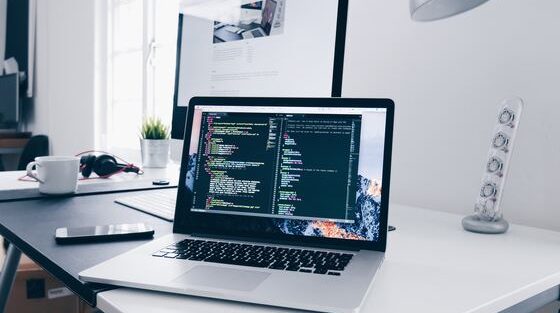Welcome to the age of Artificial Intelligence (AI), where technology is revolutionizing every aspect of our lives – including Human Resources (HR). In this fast-paced digital era, companies are harnessing the power of AI to streamline their HR processes and create more effective policies. Gone are the days of manual paperwork and tedious administrative tasks; AI is here to transform HR practices, optimizing efficiency and driving organizational success.
But what exactly is AI, and how does it impact HR? Let’s dive in and explore how this cutting-edge technology can reshape the way we manage talent, foster employee engagement, and ultimately shape a thriving work environment. Get ready for a journey into the future of HR powered by AI!
Understanding Current HR Practices
Human resources (HR) has long been an integral department within organizations, responsible for managing employee relations, recruitment, and development. However, traditional HR practices are often time-consuming and manual processes that can be prone to human error.
In today’s fast-paced business environment, it is crucial for companies to stay ahead of the curve by leveraging technology and innovation. This is where artificial intelligence (AI) comes into play. AI has the potential to revolutionize HR practices by automating routine tasks and providing valuable insights that can inform decision-making.
One area where AI can have a significant impact is in talent acquisition. With the help of algorithms and machine learning capabilities, AI-powered platforms can efficiently scan resumes, identify top candidates based on specific criteria, and even conduct initial screening interviews. This not only saves time but also ensures a more objective selection process.
Another aspect of HR that can benefit from AI integration is performance management. By collecting data from various sources such as performance reviews, project outcomes, and employee feedback surveys, AI algorithms can analyze patterns and provide valuable insights on individual or team performance. These insights enable managers to make informed decisions regarding promotions or training opportunities.
AI-driven chatbots are becoming increasingly popular in improving employee experience by providing real-time support for common inquiries related to payroll information updates or leave requests without any human intervention.
Many organizations have already started using these chatbots as virtual assistants,to enhance efficiency,and improve overall productivity.
The integration of AI into current HR practices brings several advantages including increased efficiency,reduced bias,enabling data-driven decisions, and enhancing employee experience.
Benefits of Integrating AI into HR Policies
The integration of Artificial Intelligence (AI) into HR policies has the potential to revolutionize the way organizations manage their human resources. By leveraging AI technology, businesses can streamline and enhance various aspects of HR functions, resulting in increased efficiency and improved decision-making processes.
One significant benefit of integrating AI into HR policies is its ability to automate repetitive tasks. Routine administrative work such as employee onboarding, leave management, and performance evaluations can be efficiently handled by AI-powered systems. This frees up valuable time for HR professionals to focus on more strategic initiatives that require human expertise.
Another advantage of incorporating AI in HR policies is its capability to analyze large volumes of data quickly and accurately. With access to comprehensive employee data sets, AI algorithms can identify patterns and trends that humans may overlook. These insights enable organizations to make informed decisions regarding talent acquisition, workforce planning, and employee engagement strategies.
Utilizing natural language processing capabilities, AI-enabled chatbots can provide personalized assistance to employees round-the-clock. They serve as virtual assistants capable of answering queries related to company policies, benefits administration or career development opportunities promptly.
AI-driven predictive analytics tools offer invaluable insights for talent management purposes. They can forecast attrition rates and highlight potential areas where skill gaps may exist within an organization. This information empowers companies to proactively address these issues, improving recruitment strategies and enabling targeted training programs for current employees.
Integrating AI into HR policies offers numerous benefits including automation of repetitive tasks, data-driven decision-making capabilities, enhanced employee support through chatbots and predictive analytics for effective talent management.
Real-life Examples of Companies Utilizing AI in HR
1. Google: As a tech giant, it’s no surprise that Google is at the forefront of leveraging AI in its HR practices. The company uses machine learning algorithms to sift through thousands of resumes and identify top talent based on specific criteria. This not only saves time but also ensures a more objective approach to candidate selection.
2. IBM: Known for their cutting-edge technology, IBM has integrated AI into their HR policies by creating an AI-powered virtual assistant called “Watson Recruitment.” This chatbot assists candidates throughout the hiring process, answering questions and providing personalized recommendations based on candidate responses.
3. Hilton Hotels & Resorts: To enhance employee engagement and retention, Hilton implemented an AI-driven platform called “Connie” which acts as a digital concierge for hotel staff. Connie provides real-time insights and suggestions to improve customer service while also assisting employees with various HR-related tasks such as scheduling and training.
4. Unilever: This global consumer goods company utilizes AI-driven tools like HireVue for video interviews and predictive analytics platforms to assess the cultural fit of potential hires. By using these technologies, Unilever aims to streamline recruitment processes while ensuring diversity and inclusion remain key factors in decision-making.
5. General Electric (GE): GE has implemented an internal platform powered by artificial intelligence called “Edison” which helps employees find relevant learning resources tailored to their individual development needs. By analyzing data on skills gaps and career aspirations, Edison recommends personalized learning programs that enable continuous growth within the organization.
These examples demonstrate how companies across industries are embracing the power of AI to optimize their HR practices – from improving recruitment efficiency to enhancing employee experience and development opportunities.
Conclusion
As we can see, the integration of AI into HR policies holds immense potential for improving and streamlining various aspects of human resources management. From recruitment and onboarding to employee engagement and performance management, AI can help organizations make more informed decisions and create a positive work environment.
By leveraging AI technologies such as machine learning algorithms, natural language processing, and predictive analytics, HR professionals can gain valuable insights from vast amounts of data. This enables them to make data-driven decisions that align with organizational goals while ensuring fairness and transparency in their processes.
It is important to note that while AI can greatly enhance HR practices, it should not replace the human touch entirely. Human resources will always require empathy, intuition, and critical thinking skills that cannot be replicated by machines. Therefore, it is crucial for organizations to strike a balance between utilizing AI technology and maintaining a people-centric approach.


